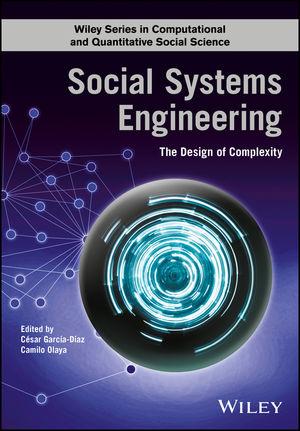Definition
Social engineering is generally qualitative analysis on a quantitative basis. The basic methods commonly used include social survey, typical experiment, historical reference, Delphi method, outrage, policy Analysis, tracking decision-making, operations research and social simulation, etc. Methods such as national information systems, decision support systems, and artificial intelligence can also be used. The research scope of social engineering includes social development goals, social index systems, social development models, social development strategies, comprehensive development plans, social forecasts, macro-control and adjustment issues. Chinese system scientist Song Jian and others used social engineering methods to study population control problems in China and established an important branch of social engineering ─ population systems engineering.
Professional website
The only social system engineering professional website is "Social System Engineering Network" with the following columns: "Social System Engineering Magazine"; Qian Xuesen; professional news; course resources; Best Practice; Excellent Governance; System Thinking of Chinese Leadership; Political System Engineering (Political Civilization); Economic System Engineering (Material Civilization); Cultural System Engineering (Spiritual Civilization); Environmental System Engineering (Ecological Civilization); Talent System Engineering; Life System Engineering; Safety System Engineering; Technical Information; Expert Database, etc.
Policy documents
China Leadership System Thinking International initiated by the Social System Engineering Expert Group, the Law System Engineering Center of the Central Academy of Political Science and Law Management, Beijing Realizer Social System Engineering Research Institute and other institutions The research plan, since 1994, has compiled and released the "Compilation of Chinese Leaders' Discourses on Social System Engineering" (continuously updated e-book).
Important Documents
● Qian Xuesen: "Developing System Engineering and Establishing a System Science System as Early as Possible" (Speech at the Beijing System Engineering Symposium in October 1979), Beijing : "Guangming Daily", November 10, 1979, 3rd edition.

● Qian Xuesen, Xu Guozhi, Wang Shouyun: "Technology of Organization Management-System Engineering" (1978);
● Qian Xuesen: "We must use modern science and technology to build Chinese characteristics "Socialism" (1991);
● Xu Kuangdi (Vice Chairman of the National Committee of the Chinese People's Political Consultative Conference, President of the Chinese Academy of Engineering): "The Key of Wisdom across Disciplines: "The Key of Wisdom-Qian Xuesen on System Science" Preface" (November 29, 2004).
● "Qian Xuesen's Proposals for Promoting the System Engineering of the Rule of Law", this article is based on some letters from Qian Xuesen Zhi Changyuan (the former director of the Center for the System of Law System Engineering of the Central Academy of Political Science and Law Management) between 1985 and 1990; Beijing: "Journal of the Central Academy of Political Science and Law", 1992 No. 2 (Total No. 2); Xi'an: "Politics and Law Education Research" (Northwest University of Political Science and Law), 1992 No. 2.
● Chang Yuan: "Talking about Social System Engineering", Beijing: "Journal of the Central Academy of Political Science and Law" (Bimonthly), 1995 No. 5 (Total No. 20), pages 42-44;
● "Social System Engineering and Excellent Governance" Vocabulary Collection" (1993~continued) (Updated e-book);
● Ye Tao: "Hu Jintao once again emphasizes that building a harmonious socialist society is an arduous and complicated system engineering";
● Beijing Realizer Institute of Social Systems Engineering Edited by the Center for Political Systems Engineering: "Chinese Leadership System Thinking" International Research Project Reference Materials "Compilation of Chinese Leadership's Essays on Social System Engineering" (1994~continuously updated e-book).
● Chang Yuan: "Use system thinking to grasp the evolution of civilization; keep pace with the times and innovate unremittingly; be the representative and implementer of green civilization in the era of globalization-a scientific speech to commemorate the 90th anniversary of the birth of Academician Qian Xuesen "(December 11, 2001);
● Chang Yuan: "The System Engineering of Rule of Law: A Scientific Approach to Realizing the Strategy of Rule of Law-Commemorating the 20th Anniversary of Qian Xuesen’s Creation of the "System of Rule of Law" (Part 1) ( Bottom)", "Modern Law";
Other Contributions
● Yon CHUNG: "Ternary Structure of Human Civilization Based on Needs and Benefits-Chinese leadership is in "The Triad Structure of Human Civilization Based on Demands-Interests: The Systems Thinking of Chinese Leadership for Grasping the Civilization Evolution Scientifically in Worldization Times", according to the author on November 19, 2002 The recording of the speeches of the Royal Institute of International Affairs (London) was compiled and published on the "Social Systems Engineering Network", "System Thinking of Chinese Leadership" and other columns.
● Chang Yuan, Yang Jianguang, Huo Xiandan, Kong Changsheng, Hua Wei, Ma Shen, Luo Meifen: The Systematic Semantics of "Scientific Development View" and "Harmonious Society"——The Science of Systematic Thinking of Contemporary Chinese Leadership Interpretation";
● Huo Xiandan, Chang Yuan, Yang Jianguang: "Security Issues and Security Systems Engineering in the Era of Globalization-Also on the Scientific Outlook on Security and Development (Part 1) (Part 2)", in the national part The collated and revised drafts of speeches made at the Urban "Safety Construction" Seminar (Ningbo·September 17-19, 2004), serialized in "Chinese Journal of Prisons", No. 4 and No. 6, 2005; The abstract is published by the Communist Party of China Haishu District Committee of Ningbo City, Zhejiang Province, Haishu District People's Government, and Ningbo Municipal Law Committee of the Communist Party of China, Zhejiang Province: "Proceedings of the "Safety Construction" Seminar in Some Urban Areas in the Country", September 2004, pages 9-10, "Experts Forum" ".
